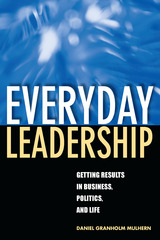
“A book that truly speaks to everyone. . . . Always practical, often inspiring, this is more a reference book than a self-improvement text, and a great read for any would-be leader.”
—Roger Penske, owner of Penske Corporation and Penske Racing
“Sound, practical advice driven home with real-world examples. . . . This is a must-read book for anyone who wants to make a positive difference in the lives of others in their community, their business, or their family.”
—Dennis W. Archer, former mayor of Detroit
“Everyday Leadership is a treasure chest of engaging stories, practical tips, and rich insights into how we each can make a difference in the world when we take responsibility for the personal power that we have. . . . once you’ve taken Everyday Leadership to heart you’ll leave this world a little bit better than you found it.”
—Jim Kouzes, coauthor of The Leadership Challenge
“Everyday Leadership taught me as much about how to be a better person as it did about being a better leader. In fact, it revealed how much the two are the same. Excellent and helpful reading for anyone.”
—Marianne Williamson, author of Return to Love and Everyday Grace
Everyday Leadership offers strategies to improve leadership skills, achieve results, and gain greater satisfaction in these hectic times. It speaks to the everyday leader, whether that person is a principal, pastor, parent, or CEO.
Daniel Granholm Mulhern brings the art of management down to earth, presenting stories that illuminate some of the best ideas about real human leadership. He offers practical steps to achieve the goal of leading well in our lives through creating a vision, communicating that vision, and living it in simple yet powerful ways.
Daniel Granholm Mulhern is the “First Gentleman” of the State of Michigan and an accomplished consultant, business coach, and motivational speaker. In addition to the personal support and counsel he offers his wife, Governor Jennifer Mulhern Granholm, Dan contributes his professional expertise, spearheading the effort to make Michigan’s state government a model for the nation as a “great place to do great work!” Dan also chairs the Michigan Community Service Commission, which promotes and coordinates volunteer efforts across the state.



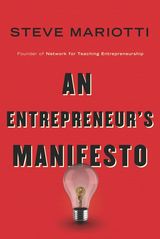
In an increasingly competitive world market, how does the United States rank? Many Americans are worried about the economic state of their nation, especially now that countries like China are becoming ever more economically powerful. What does America need to both stabilize and energize its economy?
Entrepreneurship, Steve Mariotti claims, is vital. An Entrepreneur’s Manifesto is Mariotti’s rallying cry for the world to recognize the potential that business creation holds for the individual and the economy. Mariotti explores how entrepreneurship affects schools and prisons, developed cities and isolated villages, brick-and-mortar stores, and internet-based businesses. He takes a hard look at the research on entrepreneurial education, entrepreneurship, government policy, and the social and cultural attributes most likely to foster successful business creation, incorporating his discussions with some of the best minds on the question of entrepreneurship. Mariotti also examines how the rise of the Internet and Web-based innovations like crowdfunding have both changed—and not changed—the fundamentals of promoting those who take the ultimate gamble of going into business for themselves.
As the author of several leading textbooks on the subject and founder of the Network for Teaching Entrepreneurship (NFTE), a global nonprofit organization that has educated more than 500,000 students and trained more than 5,000 teachers in 50 countries, Mariotti is both an experienced and reliable leader in what he calls the entrepreneurial revolution. Mariotti frequently writes for the Huffington Post and has been recruited by the State Department to discuss his ideas on youth entrepreneurship in Cambodia and other developing countries seeking to escape the shackles of centrally planned economic policies.
Neither a dry recitation of academic theory nor a scattered collection of feel-good stories, An Entrepreneur’s Manifesto builds on Mariotti’s unique perspective to offer a critique that is both inspiring and practical. Riveting stories complement enlightening real-world perspectives, making the work relatable and inspiring.
“There is no more revolutionary act,” Mariotti says, “than starting a business.”

The first history of the involvement of American business in direct foreign investment explores a number of pertinent questions: What was the genesis of U.S. business interests in overseas markets? What perspectives guided the financial and social policies of the pioneering companies? In what way did the activities of American business abroad influence U.S. foreign policy?
Mira Wilkins recounts the histories of early foreign investment by such familiar companies as Singer, United Fruit, Edison, American Smelting and Refining, Anaconda Copper, American Telephone, and International Harvester. Refuting a well-established myth, she demonstrates that early American foreign investment was not confined to the extractive industries and utilities, and shows that, by 1914, while America remained a debtor nation in international accounts, a large number of U.S. multinational manufacturing corporations had already come into existence. Indeed, the percentage of the 1914 gross national product attributed to direct foreign investment equals that percentage of the 1966 GNP.
Though wholly self-contained, this works joins with the author’s subsequent volume, The Maturing of Multinational Enterprise: American Business Abroad from 1914 to 1970, to form the first overall history of American business abroad from our earliest times to the late twentieth century.

Why should manufacturing firms in many national industries maintain multiple small scale plants when they might produce the same output at a lower unit cost in a single large establishment? What specific benefits are attained through the operation of multiple plants? To address these questions, the authors conducted 125 in-depth interviews with businessmen actively involved in plant size and multi-plant operating decisions. They investigated the experience of twelve industries in six countries (West Germany, France, the United Kingdom, Sweden, Canada, and the United States).
The authors develop an economic theory of plant size and multi-plant decisions and apply it to analyze the statistical and qualitative evidence on factors affecting plant size choices. They then examine the extent of multi-plant operation, its statistical correlate, and the economy actually or potentially realizable from various modes of multi-plant operation. Implications are drawn from antitrust and foreign trade policy, the evolution of scientific business management, and the development of industrial organization knowledge.
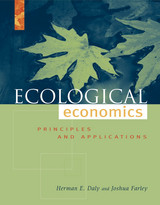
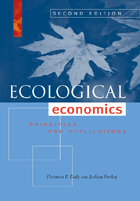
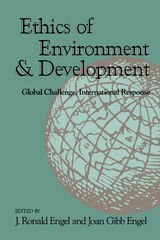
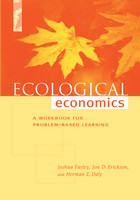
Ecological economics addresses one of the fundamental flaws in conventional economics--its failure to consider biophysical and social reality in its analyses and equations. Ecological Economics: Principles and Applications is an introductory-level textbook that offers a pedagogically complete examination of this dynamic new field.
As a workbook accompanying the text, this volume breaks new ground in applying the principles of ecological economics in a problem- or service-based learning setting. Both the textbook and this workbook are situated within a new interdisciplinary framework that embraces the linkages among economic growth, environmental degradation, and social inequity in an effort to guide policy in a way that respects fundamental human values. The workbook takes the approach a step further in placing ecological economic analysis within a systems perspective, in order to help students identify leverage points by which they can help to affect change. The workbook helps students to develop a practical, operational understanding of the principles and concepts explored in the text through real-world activities, and describes numerous case studies in which students have successfully completed projects.
Ecological Economics: A Workbook for Problem-Based Learning represents an important new resource for undergraduate and graduate environmental studies courses focusing on economics, environmental policy, and environmental problem-solving.
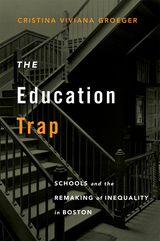
Why—contrary to much expert and popular opinion—more education may not be the answer to skyrocketing inequality.
For generations, Americans have looked to education as the solution to economic disadvantage. Yet, although more people are earning degrees, the gap between rich and poor is widening. Cristina Groeger delves into the history of this seeming contradiction, explaining how education came to be seen as a panacea even as it paved the way for deepening inequality.
The Education Trap returns to the first decades of the twentieth century, when Americans were grappling with the unprecedented inequities of the Gilded Age. Groeger’s test case is the city of Boston, which spent heavily on public schools. She examines how workplaces came to depend on an army of white-collar staff, largely women and second-generation immigrants, trained in secondary schools. But Groeger finds that the shift to more educated labor had negative consequences—both intended and unintended—for many workers. Employers supported training in schools in order to undermine the influence of craft unions, and so shift workplace power toward management. And advanced educational credentials became a means of controlling access to high-paying professional and business jobs, concentrating power and wealth. Formal education thus became a central force in maintaining inequality.
The idea that more education should be the primary means of reducing inequality may be appealing to politicians and voters, but Groeger warns that it may be a dangerous policy trap. If we want a more equitable society, we should not just prescribe more time in the classroom, but fight for justice in the workplace.

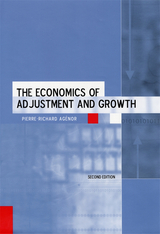
This book provides a systematic and coherent framework for understanding the interactions between the micro and macro dimensions of economic adjustment policies; that is, it explores short-run macroeconomic management and structural adjustment policies aimed at promoting economic growth. It emphasizes the importance of structural microeconomic characteristics in the transmission of policy shocks and the response of the economy to adjustment policies. It has particular relevance to the economics of developing countries.
The book is directed to economists interested in an overview of the economics of reform; economists in international organizations, such as the UN, the IMF, and the World Bank, dealing with development; and economists in developing countries. It is also a text for advanced undergraduate students pursuing a degree in economic policy and management and students in political science and public policy.

At least since Athenian trade sanctions helped to spark the Peloponnesian War, economic coercion has been a prominent tool of foreign policy. In the modern era, sovereign states and multilateral institutions have imposed economic sanctions on dictatorial regimes or would-be nuclear powers as an alternative to waging war. They have conditioned offers of aid, loans, and debt relief on recipients’ willingness to implement market and governance reforms. Such methods interfere in freedom of trade and the internal affairs of sovereign states, yet are widely used as a means to advance human rights. But are they morally justifiable?
Cécile Fabre’s Economic Statecraft: Human Rights, Sanctions, and Conditionality provides the first sustained response to that question. For millennia, philosophers have explored the ethics of war, but rarely the ethics of economic carrots and sticks. Yet the issues raised could hardly be more urgent. On what grounds can we justify sanctions, in light of the harms they inflict on civilians? If, as some argue, there is a human right to basic assistance, should donors be allowed to condition the provision of aid on recipients’ willingness to do their bidding?
Drawing on human rights theories, theories of justifiable harm, and examples such as IMF lending practices and international sanctions on Russia and North Korea, Fabre offers a defense of economic statecraft in some of its guises. An empirically attuned work of philosophy, Economic Statecraft lays out a normative framework for an important tool of diplomacy.

Environmental Land Use Planning and Management is a unique new textbook that presents a diverse, comprehensive, and coordinated approach to issues of land use planning and management and their impacts on the environment. It builds on recent advances in environmental science, engineering, and geospatial information technologies to provide students with the scientific foundation they need to understand both natural land systems and engineering approaches that can mitigate impacts of land use practices. While offering a base of knowledge in planning theory and natural science, its primary emphasis is on describing and explaining emerging approaches, methods, and techniques for environmental land use planning, design, and policy.
The book is divided into two parts. Part I, "Environmental Land Use Management," introduces broad concepts of environmental planning and describes management approaches. Those approaches include collaborative environmental management, land conservation, environmental design, government land use management, natural hazard mitigation, and ecosystem and watershed management. Part II, "Environmental Land Use Principles and Planning Analysis," focuses on land analysis methods, such as geospatial data and geographic information systems (GIS); soils and slope analysis; assessment of stormwater quantity and quality; land use and groundwater protection; ecological assessment for vegetation, wetlands, and habitats; and integrated analytical techniques like land suitability analysis, carrying capacity studies, and environmental impact assessment.
Environmental Land Use Planning and Managementoffers a unique interdisciplinary perspective with an emphasis on application. It is an important new text for advanced undergraduate and graduate courses in environmental planning, landscape architecture, geography, environmental studies, and natural resource management, and a valuable resource for professionals and others concerned with issues of environmental planning and land use.

The book has been reorganized based on feedback from instructors, and contains a new chapter entitled "Land Use, Energy, Air Quality and Climate Change." Throughout, boxes have been added on such topics as federal laws, state and local environmental programs, and critical problems and responses.
This new edition addresses three broad subject areas. Part I, "Environmental Planning and Management," provides an overview of the field, along with the fundamentals of land use planning, and presents a collaborative approach to environmental planning. Part II, "Sustainable Land Use Principles and Planning Analysis," considers environmental and geospatial information; soils, topography, and land use; stream flow, flooding, and runoff; stormwater management and stream restoration; groundwater hydrology; landscape ecology; wildlife habitats and biodiversity; energy, air quality and climate change; and methods for land analysis. Part III, "Managing Watersheds, Ecosystems and Development to Achieve Sustainable Communities," explains the principles of ecosystem management, restoration, and protection; land conservation; and the mitigation of natural hazards.
With this thoroughly revised second edition, Environmental Land Use Planning and Management maintains its preeminence as the leading textbook in its field.
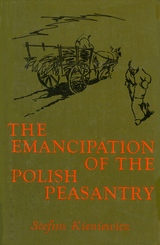
Captured in this study are the complexity and fascination of one hundred and fifty years of Polish political, cultural, and socioeconmic history. The author traces the course of peasant emancipation in Poland from its beginnings during the Enlightenment to its aftermath in the cultural awakening of the peasantry during the half century prior to World War I and shows how the peasant question played a vital role in the struggle for independence in partitioned Poland.
The book synthesizes, for the first time in any language, the work of leading Polish historians during the present century. It presents a clear analysis of the disintegration of the economic system based on serfdom and compulsory labor prevalent in feudal Poland and traces the emergence of modern capitalist conditions, including wage labor and independent property rights.
Also analyzed is the role of foreign goverments in the emacipation process. The freeing of the serfs took place during a period when all or most of the country was under the rule of Russia, Prussia, or Austria. Although emancipation was due primarily to economic forces withing Poland, it was hastened by peasant resistance and the national struggle for political independence led by Polish patriots who demanded far-reaching social reforms.
This comprehensive study provides valuable information not only to those with a particular interest in Poland but also to scholars concerned with the parallel problems in Russia andother Eastern Eurpean countries, to specialists in agrarian history, and to students of Eastern European history who lack adequate reading materials in English.

Drawing on decades of research, Elusive Justice demonstrates how these women continue to face numerous adverse circumstances, including geographical isolation, encroaching capitalist enterprises, and a dearth of social and institutional support. Donny Meertens contends that women's advocacy organizations must have a prominent role in overseeing these transitional policies in order to create a more just society. By bringing together the underresearched topic of property repayment and the pursuit of gender justice in peacebuilding, these findings have broad significance elsewhere in the world.

Volume 1 collects for the first time in one source Johnson's most important work. These classic papers explore the consequences of government intervention in United States and world agriculture; the economics of agricultural supply and of rural labor and human capital issues; and the analysis of agricultural productivity in poor countries, including the centrally planned economies of China and Eastern Europe. Models of precise reasoning and powerful empirical research, the papers cover a wide range of topics—from U.S. commodity price policy to the economics of population control and farm policy reform in China. Volume 1 includes a definitive bibliography of Johnson's published writings.
Volume 2 presents twenty-two papers by Johnson's former students and colleagues. International in scope, these papers explore themes and topics inspired by Johnson's work, including agricultural policy and U.S. farm prices; European Common Agricultural Policy; and agricultural and rural development in the Third World. Contributors to Volume 2 are David G. Abler, John M. Antle, Richard R. Barichello, Andrew P. Barkley, Karen Brooks, David S. Bullock, Robert E. Evenson, B. Delworth Gardner, Bruce L. Gardner, Dale M. Hoover, Wallace E. Huffman, Paul R. Johnson, Yoav Kislev, Justin Yifu Lin, Yair Mundlak, John Nash, Keijuro Otsuka, Willis Peterson, Todd E. Petzel, Vernon W. Ruttan, Maurice Schiff, G. Edward Schuh, Theodore W. Schultz, James Snyder, Vasant Sukhatme, Daniel A. Sumner, Vinod Thomas, George Tolley, and Alberto Valdes.
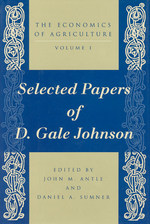
Volume 1 collects for the first time in one source Johnson's most important work. These classic papers explore the consequences of government intervention in United States and world agriculture; the economics of agricultural supply and of rural labor and human capital issues; and the analysis of agricultural productivity in poor countries, including the centrally planned economies of China and Eastern Europe. Models of precise reasoning and powerful empirical research, the papers cover a wide range of topics—from U.S. commodity price policy to the economics of population control and farm policy reform in China. Volume 1 includes a definitive bibliography of Johnson's published writings.
Volume 2 presents twenty-two papers by Johnson's former students and colleagues. International in scope, these papers explore themes and topics inspired by Johnson's work, including agricultural policy and U.S. farm prices; European Common Agricultural Policy; and agricultural and rural development in the Third World. Contributors to Volume 2 are David G. Abler, John M. Antle, Richard R. Barichello, Andrew P. Barkley, Karen Brooks, David S. Bullock, Robert E. Evenson, B. Delworth Gardner, Bruce L. Gardner, Dale M. Hoover, Wallace E. Huffman, Paul R. Johnson, Yoav Kislev, Justin Yifu Lin, Yair Mundlak, John Nash, Keijuro Otsuka, Willis Peterson, Todd E. Petzel, Vernon W. Ruttan, Maurice Schiff, G. Edward Schuh, Theodore W. Schultz, James Snyder, Vasant Sukhatme, Daniel A. Sumner, Vinod Thomas, George Tolley, and Alberto Valdes.
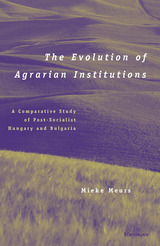
With the collapse of the state socialist regimes in East-Central Europe, it was widely expected that collectivized agriculture would quickly be remade in the glowing image of China--a patchwork of small, privately run farms yielding rapid increases in output and incomes. However, the European experience has been quite different; while socialist collective farms have disappeared, collective forms of organization have persisted, and private farming has been slow to emerge. Meurs argues that an understanding of the causes of the slow emergence of private farming is essential to effective policy intervention in agriculture. This book contributes to such an understanding through analyzing variations in farm organization and rural market development and comparing agricultural restructuring in Hungary and Bulgaria.
The Evolution of Agrarian Institutions is unique in its combination of original survey data, published data on land use, and published historical data. It also tests two institutionalist explanations for the pace and direction of change in agricultural organization. This book will be of interest to economists, political scientists, sociologists, scholars working in the area of rural development in emerging countries, and anyone with an interest in transitional economics.
Mieke Meurs is Associate Professor of Economics, American University.
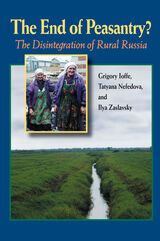
The End of Peasantry? examines the dramatic recent decline of agriculture in post-Soviet Russia. Historically, Russian farmers have encountered difficulties relating to the sheer abundance of land, the vast distances between population centers, and harsh environmental conditions. More recently, the drastic depopulation of rural spaces, decreases in sown acreage, and overall inefficiency of land usage have resulted in the disruption and spatial fragmentation of the countryside. For many decades, rural migration has been a selective process, resulting in the most enterprising and self-motivated people leaving the rural periphery. The new agricultural operators representing nascent but aggressive Russian agribusiness have difficulty co-opting traditional rural communities afflicted by profound social dysfunction. The contrast between agriculture in proximity to large cities and in their hinterlands is as sharp as ever, and some vacant niches are increasingly occupied by ethnically non-Russian migrants. All of these conditions existed to some degree in pre-Soviet times, but they have been exacerbated since Russia took steps toward a market economy.
Understudied and often underestimated in the West, the crisis facing Russian agriculture has profound implications for the political and economic stability of Russia. The authors see hope in the significant increase in land use intensity on vastly diminished farmland. The lessons gathered from this thoroughly researched study are far-reaching and relevant to the disciplines of Slavic and European studies, agriculture, political science, economics, and human geography.

Recent agricultural reforms in the People's Republic of China have generated great interest in the ability of the Chinese state, traditional and modern, to accommodate rapid economic change. Exhausting the Earth examines an earlier period—from the late Ming to the mid-Qing era marked by tremendous population growth, extension of the market, and increases in agricultural productivity.
Peter C. Perdue describes the relationship between agricultural production and state policies toward taxation, land clearance, dike-building; property rights, and agriculture in Hunan. During the late seventeenth and early eighteenth centuries, Hunan changed from a peripheral, sparsely populated region into a crowded, highly commercialized, grain-exporting province. State policies had stimulated this growth, but by the early nineteenth century serious signs of overpopulation, social conflict, and ecological exhaustion had surfaced. Local officials were conscious of these dangers, but the influence of the state on the economy was so weakened that they could not alter the ominous trends. The stage was set for the disintegration and rebellion of the nineteenth century. This in-depth study of official policies in one region over a long stretch of time illuminates the dynamics of official initiatives and local response.

This story of Kenya in the decade before the outbreak of the Mau Mau emergency presents an integrated view of imperial government as well as examining the social and economic causes of the Kikuyu revolt. Dr. Throup combines traditional Imperial History with its emphasis on the high politics of “The Official Mind” in the Colonial Office or in Government House with the new African historiography that concentrates on the people themselves.
Sir Philip Mitchell was the proconsul chosen to reassert metropolitan authority. Under Kenyatta’s leadership the Kenya African Union mobilized a popular constituency among the peasantry. In Nairobi the Kikuyu street gangs linked up with the militant Kikuyu trade unions, led by Fred Kubai and Bildad Kaggia, to challenge Kenyatta’s leadership.
The Mau Mau movement, as it was called by the government, was an alliance between three groups of discontented Kikuyu: the urban unemployed and destitute, the dispossessed squatters from the White Highlands and the tenants and members of the junior clans in the Kikuyu reserves.
The revolt was a dominating factor in convincing the conservative imperial government that the cost of repression in the African colonies was not worth the troops and resources.
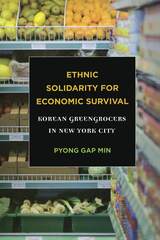
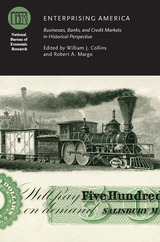
To better understand the historical processes central to American economic development, Enterprising America brings together contributors who address the economic behavior of American firms and financial institutions—and the associated legal institutions that shaped their behavior—throughout the nineteenth and early twentieth centuries. Collectively, the contributions provide an account of the ways in which businesses, banks, and credit markets promoted America’s extraordinary economic growth. Among the topics that emerge are the rise of incorporation and its connection to factory production in manufacturing, the organization and operation of large cotton plantations in comparison with factories, the regulation and governance of banks, the transportation revolution’s influence on bank stability and survival, and the emergence of long-distance credit in the context of an economy that was growing rapidly and becoming increasingly integrated across space.
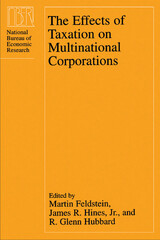
In an attempt to quantify the effect of tax policy on international investment choices, this volume presents in-depth analyses of the interaction of international tax rules and the investment decisions of multinational enterprises. Ten papers assess the role played by multinational firms and their investment in the U.S. economy and the design of international tax rules for multinational investment; analyze channels through which international tax rules affect the costs of international business activities; and examine ways in which international tax rules affect financing decisions of multinational firms. As a group, the papers demonstrate that international tax rules have significant effects on firms' investment and other financing decisions.

A quiet revolution came to corporate America during the late 1980s and early 1990s. Large shareholders—pension funds, insurance companies, money manages, and commercial banks—exercised new-found muscle, pressuring senior managers to improve disappointing financial results by reshaping their organization. Michael Useem reveals how those investor pressures have transformed the inside structures of many corporations, better aligning them with shareholder interest.
Useem draws on numerous sources, including interviews with senior managers and intensive studies of seven large corporations representing a range of restructuring experiences and industries—including pharmaceuticals, transportation, chemicals, retailing, electronics, and financial services. He shows that organizational changes have affected many areas of corporate life: headquarters staffs have been reduced authority has filtered down to operating units, and compensation has become more closely tied to performance. Change also extends to corporate governance, where managers have fought back by seeking legal safeguards against takeovers and by staggering board terms. They’ve also put significant resources into building more effective relations with shareholders.
As Useem demonstrates, this revolution has reached beyond the corporation, influencing American politics and law. As increasing ownership concentration has caused companies to focus more attention on shareholders, corporate political agendas have shifted from fighting government regulation to resisting shareholder intrusion.
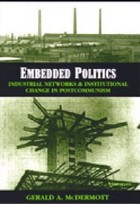
Using comparative case analysis of several manufacturing sectors, Embedded Politics accounts for change and continuity in the formation of new economic governance institutions in the Czech Republic. It analytically links the macropolitics of state policy with the micropolitics of industrial restructuring. Thus the book advances an alternative approach for the comparative study of institutional change and industrial adjustment.
As a historical and contemporary analysis of Czech firms and public institutions, this book will command the attention of students of postcommunist reforms, privatization, and political-economic transitions in general. But also given its interdisciplinary approach and detailed empirical analysis of policy-making and firm behavior, Embedded Politics is a must read for scholars of politics, economics, sociology, political economy, business organization, and public policy.
Gerald A. McDermott is Assistant Professor of Management in The Wharton School of Management at The University of Pennsylvania. His research applies recent advances in comparative political economy and industrial organization, including theories of social networks, historical institutionalism, and incomplete markets to analyze issues of economic governance, firm creation, and industrial restructuring in advanced and newly industrialized countries. As evidenced by Embedded Politics, his current focus is on problems of institutional and organizational learning in the formation of meso-level governance institutions in emerging market and postsocialist economies.
McDermott also works as Senior Research Fellow at the IAE Escuela de Direccion y Negocios at Universidad Austral in Buenos Aires, and he has served as Project Coordinator at the Inter-American Development Bank. He has consulted for the Finance, Private Sector, and Infrastructure Division at the World Bank and advised the Deputy Foreign Minister of the Czech Republic. In addition he has published many papers and book chapters on entrepreneurship, privatization, institutions, and networks in Central Europe and Latin America.
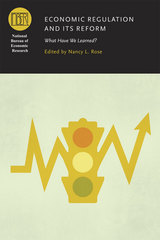
Economic Regulation and Its Reform collects research by a group of distinguished scholars who explore these and other issues surrounding government economic intervention. Determining the consequences of such intervention requires a careful assessment of the costs and benefits of imperfect regulation. Moreover, government interventions may take a variety of forms, from relatively nonintrusive performance-based regulations to more aggressive antitrust and competition policies and barriers to entry. This volume introduces the key issues surrounding economic regulation, provides an assessment of the economic effects of regulatory reforms over the past three decades, and examines how these insights bear on some of today’s most significant concerns in regulatory policy.

America’s cities are increasingly acknowledged as sites of renewal and economic opportunity—but how can city leaders facing physical and financial constraints harness this positive energy to create sustainable development? The story of Cleveland in the early 1980s provides the necessary roadmap. Mayor George V. Voinovich, by drawing on the combined strengths of the public and private sectors, took Cleveland from financial default to becoming “America’s Comeback City,” and he later used the best practices he developed there to tackle state-level challenges as governor of Ohio. The public-private partnership model that Voinovich pioneered has since become the gold standard for cities seeking to maximize resources.
Using lessons from Cleveland, Voinovich developed this handbook for governments and private entities seeking a mutually enriching partnership. It is his legacy to those who will guide America’s cities to new growth and vitality.
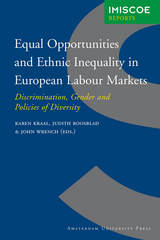
Despite laws and policy measures being developed at the European, national, and local levels, job-seeking immigrants and ethnic minorities still suffer unequal access and ethnic discrimination. This important volume—divided into sections on discrimination, gender, equity policies, and diversity management—compares several European labor markets, recommends methods for conducting further research, and evaluates the actual effects of discrimination-combating policies.
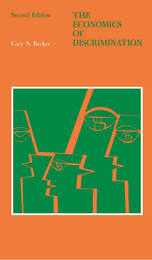
Mr. Becker's work confronts the economic effects of discrimination in the market place because of race, religion, sex, color, social class, personality, or other non-pecuniary considerations. He demonstrates that discrimination in the market place by any group reduces their own real incomes as well as those of the minority.
The original edition of The Economics of Discrimination was warmly received by economists, sociologists, and psychologists alike for focusing the discerning eye of economic analysis upon a vital social problem—discrimination in the market place.
"This is an unusual book; not only is it filled with ingenious theorizing but the implications of the theory are boldly confronted with facts. . . . The intimate relation of the theory and observation has resulted in a book of great vitality on a subject whose interest and importance are obvious."—M.W. Reder, American Economic Review
"The author's solution to the problem of measuring the motive behind actual discrimination is something of a tour de force. . . . Sociologists in the field of race relations will wish to read this book."—Karl Schuessler, American Sociological Review
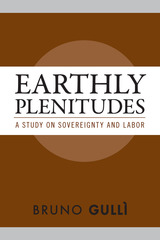
Gullì first reviews approaches to sovereignty by philosophers as varied as Gottfried Leibniz and Georges Bataille, and then looks at concrete examples where the alliance of sovereignty and capital cracks under the potency of living labor. He examines contingent academic labor as an example of the super-exploitation of labor, which has become a global phenomenon, and as such, a clear threat to the sovereign logic of capital. Gullì also looks at disability to assert that a new measure of humanity can only be found outside the schemes of sovereignty, productivity, efficiency, and independence, through care and caring for others, in solidarity and interdependence.

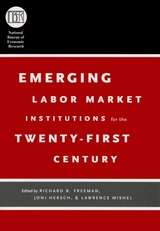
This important volume provides case studies of new labor market institutions and new directions for existing institutions. The contributors examine the behavior and impact of new organizations that have formed to solve workplace problems and to bolster the position of workers. They also document how unions employ new strategies to maintain their role in the economic system. While non-union institutions are unlikely to fill the gap left by the decline of unions, the findings suggest that emerging groups and unions might together improve some dimensions of worker well-being. Emerging Labor Market Institutions is the story of workers and institutions in flux, searching for ways to represent labor in the new century.
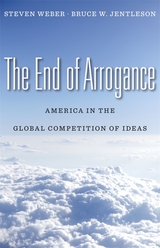
Free-market capitalism, hegemony, Western culture, peace, and democracy—the ideas that shaped world politics in the twentieth century and underpinned American foreign policy—have lost a good deal of their strength. Authority is now more contested and power more diffuse. Hegemony (benign or otherwise) is no longer a choice, not for the United States, for China, or for anyone else.
Steven Weber and Bruce Jentleson are not declinists, but they argue that the United States must take a different stance toward the rest of the world in this, the twenty-first century. Now that we can’t dominate others, we must rely on strategy, making trade-offs and focusing our efforts. And they do not mean military strategy, such as “the global war on terror.” Rather, we must compete in the global marketplace of ideas—with state-directed capitalism, with charismatic authoritarian leaders, with jihadism. In politics, ideas and influence are now critical currency.
At the core of our efforts must be a new conception of the world order based on mutuality, and of a just society that inspires and embraces people around the world.

The safety of the work place is now a highly visible public issue. Many are calling for tighter regulation to reduce worker risk, while others feel government intervention is ineffective and costly. Here Kip Viscusi explores how well markets for hazardous jobs actually work. According to classical economics, other things being equal, a worker will demand more pay for a hazardous job than a safe one. However, this assumes that job related hazards are known, when often they are not. Using recent advances in the economics of information, Viscusi develops a theory of individual responses to job hazards under conditions of uncertainty.
His assumptions are that hazards are uncertain events and that learning about them is a process that takes place over time. He then employs this analysis to study the performance of job markets in matching persons and jobs and in compensating persons for exposure to hazards. Finally he tests his adaptive model of the decision to quit and finds substantial evidence that risks are indeed reflected in wage differentials and quit behavior.
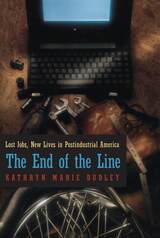
"An excellent study not only of the cultural disruptions caused by the shutdown of Chrysler's operations in Kenosha, Wisconsin, but also of the ideology of progress that abetted the shutdown."—Stephen Amberg, Industrial and Labor Relations Review
"With the eye of an anthropologist, [Dudley] examines the tensions between the 'culture of hands' and the 'culture of mind.' Her account is especially instructive because, by many measures, Kenosha has successfully recovered, yet for many the pain still remains."—Booklist
"Exceptional. . . . Should be widely read."—Douglas Harper, Contemporary Sociology
"Make[s] clear what a tenuous concept economic security is, especially when the rules for achieving security are in flux."—Barbara Presley Noble, New York Times
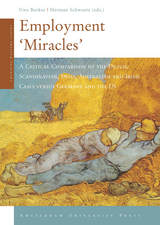
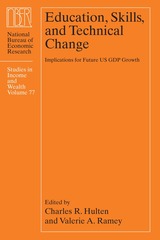
Education, Skills, and Technical Change explores various facets of these questions and provides an overview of educational attainment in the United States and the channels through which labor force skills and education affect GDP growth. Contributors to this volume focus on a range of educational and training institutions and bring new data to bear on how we understand the role of college and vocational education and the size and nature of the skills gap. This work links a range of research areas—such as growth accounting, skill development, higher education, and immigration—and also examines how well students are being prepared for the current and future world of work.

of courage." -- John van Amerongen, editor, Alaska Fisherman's
Journal
"These little-known tales
of women working in Alaska's commercial fishing industry make for great
reading. . . . Readers will be amazed by their stories." -- Laine
Welch, Alaska Fish Radio
"A richly textured story,
a multi-genre text that invites readers to witness women's conversation
with America's last frontier, Alaska." -- Patricia Foster, University
of Iowa
Why do women choose an occupation
that has been ranked the most dangerous in the nation? What do women give
up--and get in return--when they take on the tasks of fishermen? The
Entangling Net explores these issues through the stories of twenty
women who have chosen to work in this extremely risky, male-dominated
profession.
Leslie Leyland Fields lyrically
weaves their stories with her own experiences as a fishing woman. She
tells of long, exhausting days in skiffs, catching fish in brutally cold
weather on waters that are often violent. Her words and those of the women
she interviews convey the paradoxical relationship the women have with
commercial fishing: they face extraordinarily difficult working conditions
made more difficult and dangerous by male crews and skippers who don't
welcome women, yet they feel impelled by the challenge of the work to
return to their jobs season after season.
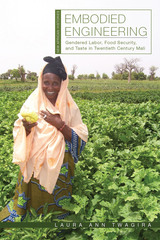
Foregrounding African women’s ingenuity and labor, this pioneering case study shows how women in rural Mali have used technology to ensure food security through the colonial period, environmental crises, and postcolonial rule.
By advocating for an understanding of rural Malian women as engineers, Laura Ann Twagira rejects the persistent image of African women as subjects without technological knowledge or access and instead reveals a hidden history about gender, development, and improvisation. In so doing, she also significantly expands the scope of African science and technology studies.
Using the Office du Niger agricultural project as a case study, Twagira argues that women used modest technologies (such as a mortar and pestle or metal pots) and organized female labor to create, maintain, and reengineer a complex and highly adaptive food production system. While women often incorporated labor-saving technologies into their work routines, they did not view their own physical labor as the problem it is so often framed to be in development narratives. Rather, women’s embodied techniques and knowledge were central to their ability to transform a development project centered on export production into an environmental resource that addressed local taste and consumption needs.
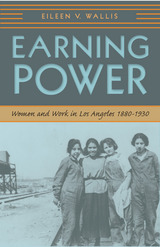
The half-century between 1880 and 1930 saw rampant growth in many American cities and an equally rapid movement of women into the work force. In Los Angeles, the city not only grew from a dusty cow town to a major American metropolis but also offered its residents myriad new opportunities and challenges.Earning Power examines the role that women played in this growth as they attempted to make their financial way in a rapidly changing world. Los Angeles during these years was one of the most ethnically diverse and gender-balanced American cities. Moreover, its accelerated urban growth generated a great deal of economic, social, and political instability. In Earning Power, author Eileen V. Wallis examines how women negotiated issues of gender, race, ethnicity, and class to gain access to professions and skilled work in Los Angeles. She also discusses the contributions they made to the region’s history as political and social players, employers and employees, and as members of families. Wallis reveals how the lives of women in the urban West differed in many ways from those of their sisters in more established eastern cities. She finds that the experiences of women workers force us to reconsider many assumptions about the nature of Los Angeles’s economy, as well as about the ways women participated in it. The book also considers how Angelenos responded to the larger national social debate about women’s work and the ways that American society would have to change in order to accommodate working women. Earning Power is a major contribution to our understanding of labor in the urban West during this transformative period and of the crucial role that women played in shaping western cities, economies, society, and politics.
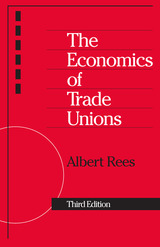



The rural labor movement played a surprisingly active role in Brazil’s transition to democracy in the 1980s. While in most Latin American countries rural labor was conspicuously marginal, in Brazil, an expanded, secularized, and centralized movement organized strikes, staged demonstrations for land reform, demanded political liberalization, and criticized the government’s environmental policies.
In this ground-breaking book, Anthony W. Pereira explains this transition as the result of two intertwined processes - the modernization of agricultural production and the expansion of the welfare state into the countryside - and explores the political consequences of these processes, occurring not only in Latin America but in much of the Third World.

French trade unions played a historical role in the 1930s quite unlike that of any other labor movement. Against a backdrop of social unrest, parliamentary crisis, and impending world war, industrial unionists in the great metal-fabricating plants of the Paris Region carried out a series of street mobilizations, factory occupations, and general strikes that were virtually unique in Western history.
The unionization of the metal industry, following a series of anti-fascist demonstrations and plant seizures, would constitute the defining episode in modern French labor history and one of the great chapters in European social history. Yet little is known of these extraordinary events.
With a style that captures the vivid character of these experiences, Every Factory a Fortress tells the story of the Paris metal workers, who succeeded in organizing the largest Communist union in the Western world, reshaping the parameters of French social relations, and, ultimately, altering the course of French destinies.

These two volumes update the earlier Means-Tested Transfer Programs in the United States with a discussion of the many changes in means-tested government programs and the results of new research over the past decade. While some programs that experienced falling outlays in the years prior to the previous volume have remained at low levels of expenditure, many others have grown, including Medicaid, the Earned Income Tax Credit, the Supplemental Nutrition Assistance Program, and subsidized housing programs. For each program, the contributors describe its origins and goals, summarize its history and current rules, and discuss recipients’ characteristics and the types of benefits they receive.
This is an invaluable reference for researchers and policy makers that features detailed analyses of many of the most important transfer programs in the United States.

These two volumes update the earlier Means-Tested Transfer Programs in the United States with a discussion of the many changes in means-tested government programs and the results of new research over the past decade. While some programs that experienced falling outlays in the years prior to the previous volume have remained at low levels of expenditure, many others have grown, including Medicaid, the Earned Income Tax Credit, the Supplemental Nutrition Assistance Program, and subsidized housing programs. For each program, the contributors describe its origins and goals, summarize its history and current rules, and discuss recipients’ characteristics and the types of benefits they receive.
This is an invaluable reference for researchers and policy makers that features detailed analyses of many of the most important transfer programs in the United States.



'Early in my research, a friend with excellent knowledge of the United Auto Workers internal operations told me, "Don't give up. They are hiding something"…'
It's 1990, and US labor is being outsourced to Mexico. Rumors of a violent confrontation at the Mexican Ford Assembly plant on January 8 reach the United Auto Workers (UAW) union in the US: nine employees had been shot by a group of drunken thugs and gangsters, in an act of political repression which changed the course of Mexican and US workers' rights forever.
Rob McKenzie was working at the Ford Twin Cities Assembly plant in Minnesota when he heard of the attack. He didn't believe the official story, and began a years-long investigation to uncover the truth. His findings took him further than he expected - all the way to the doors of the CIA.
Virtually unknown outside of Mexico, the full story of 'El Golpe', or 'The Coup', is a dark tale of political intrigue that still resonates today.
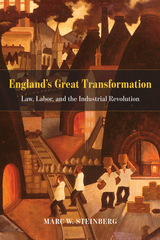
Building his argument on three case studies—the Hanley pottery industry, Hull fisheries, and Redditch needlemakers—Steinberg employs both local and national analyses to emphasize the ways in which these master-servant laws allowed employers to use the criminal prosecutions of workers to maintain control of their labor force. Steinberg provides a fresh perspective on the dynamics of labor control and class power, integrating the complex pathways of Marxism, historical institutionalism, and feminism, and giving readers a subtle yet revelatory new understanding of workplace control and power during England’s Industrial Revolution.

Although some of Germany’s foreign workers have gradually attained a degree of social and economic legitimacy, Barbieri explains how they remain effectively excluded from true German citizenship. Describing how this exclusion has occurred and assessing current attitudes toward political membership in Germany, he argues for a just and democratic policy toward the tax-paying, migrant worker minority, one that would combine the extension of the individual rights of citizenship with the establishment of certain group rights. Through a dissection of ongoing public “membership debates” over issues such as suffrage, dual citizenship, and immigration and refugee policy, Barbieri identifies a range of competing responses to the question of who “belongs” in Germany. After critiquing these views, he proposes an alternative ethic of membership rooted in an account of domination and human rights that seeks to balance individual and group rights within the context of a commitment to democracy and equal citizenship.
Indispensable for scholars of German studies, Ethics of Citizenship also raises questions that will attract moral philosophers, constitutional scholars, and those interested in the continuing, global problems associated with migration.
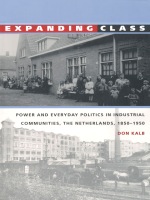
Expanding Class compares Brabant’s quaint central shoemaking district to its electrical boomtown Eindhoven, home of the enormous Philips Corporation. It introduces the concept of "flexible familism," a sociological phenomenon in which family daughters were employed to facilitate a cheap and ample labor force. Industrialists manipulated and fostered flexible familism to ensure the discipline and loyalty of the working-class community. By using the industrial Netherlands as a paradigm, Kalb reveals new and productive ways to examine class construction and the development of labor history in other countries over the past thirty years, steering a path between the two schools of thought—cultural and economic—that have dominated labor history discussions in recent years.
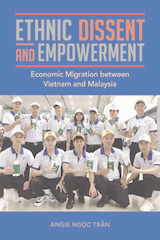
A rare study of labor migration in the Global South, Ethnic Dissent and Empowerment answers essential questions about why nations export and import migrant workers and how the workers protect themselves not only within the system, but by circumventing it altogether.

The century-long process by which a distinct pattern of Japanese labor relations evolved is traced through the often turbulent interactions of workers, managers, and, at times, government bureaucrats and politicians. The author argues that, although by the 1920s labor relations had reached a stage that foreshadowed postwar development, it was not until the 1940s and 1950s that something closely akin to the contemporary pattern emerged.
The central theme is that the ideas and actions of the workers, whether unionized or not, played a vital role in the shaping of the system. This is the only study in the West that demonstrates how Japanese workers sought to change and to some extent succeeded in changing the structure of factory life. Managerial innovations and the efforts of state bureaucrats to control social change are also examined.
The book is based on extensive archival research and interviewing in Japan, including the use of numerous labor-union publications and the holdings of the prewar elite’s principal organization for the study of social issues, the Kyochokai (“Association for Harmonious Cooperation”)—both collections having only recently been catalogued and opened to scholars. This is an intensive look at past developments that underlie labor relations in today’s Japanese industrial plants.

Originally delivered as the Stegner Lecture at the 2020 annual symposium of the Wallace Stegner Center for Land, Resources and the Environment, this book explores how, in the context of the broad global trends of population growth, climate crisis, and inequitable food availability, food systems need to be re-oriented to ensure they can produce enough food to nourish the world. Fanzo discusses moving toward on-farm sustainable food production practices, decreasing food loss and waste, addressing poverty by creating jobs and decent livelihoods, and providing safe, affordable, and healthy diets for everyone. At the same time, food systems must decrease the pressure on biodiversity loss, conserve land and water resources, minimize air and water pollution, and lower greenhouse gas emissions.
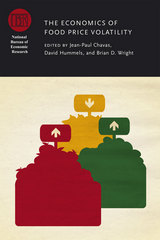
The researchers who contributed to The Economics of Food Price Volatility address these and other questions. They examine the forces driving both recent and historical patterns in food price volatility, as well as the effects of various public policies in affecting this volatility. The chapters include studies of the links between food and energy markets, the impact of biofuel policy on the level and variability of food prices, and the effects of weather-related disruptions in supply. The findings shed light on the way price volatility affects the welfare of farmers, traders, and consumers.
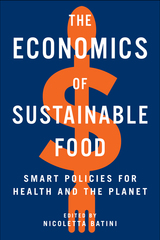
The Economics of Sustainable Food details the true cost of food for people and the planet. It illustrates how to transform our broken system, alleviating its severe financial and human burden. The key is smart macroeconomic policy that moves us toward methods that protect the environment like regenerative land and sea farming, low-impact urban farming, and alternative protein farming, and toward healthy diets. The book’s multidisciplinary team of authors lay out detailed fiscal and trade policies, as well as structural reforms, to achieve those goals.
Chapters discuss strategies to make food production sustainable, nutritious, and fair, ranging from taxes and spending to education, labor market, health care, and pension reforms, alongside regulation in cases where market incentives are unlikely to work or to work fast enough. The authors carefully consider the different needs of more and less advanced economies, balancing economic development and sustainability goals. Case studies showcase successful strategies from around the world, such as taxing foods with a high carbon footprint, financing ecosystems mapping and conservation to meet scientific targets for healthy biomes permanency, subsidizing sustainable land and sea farming, reforming health systems to move away from sick care to preventive, nutrition-based care, and providing schools with matching funds to purchase local organic produce.
In the years ahead, few issues will be more important for individual prosperity and the global economy than the way we produce our food and what food we eat. This roadmap for reform is an invaluable resource to help global policymakers improve countless lives.

Pérez-López examines the various efforts at economic planning in the years following the Revolution and provides in-depth analysis of aspects particular to the sugar industry: cultivation, mechanization, energy and transportation, refining and the manufacture of sugar derivatives, production costs, and foreign trade.

The practice of reading aloud has a long history, and the tradition still survives in Cuba as a hard-won right deeply embedded in cigar factory workers' culture. In El Lector, Araceli Tinajero deftly traces the evolution of the reader from nineteenth-century Cuba to the present and its eventual dissemination to Tampa, Key West, Puerto Rico, and Mexico. In interviews with present-day and retired readers, she records testimonies that otherwise would have been lost forever, creating a valuable archive for future historians.
Through a close examination of journals, newspapers, and personal interviews, Tinajero relates how the reading was organized, how the readers and readings were selected, and how the process affected the relationship between workers and factory owners. Because of the reader, cigar factory workers were far more cultured and in touch with the political currents of the day than other workers. But it was not only the reading material, which provided political and literary information that yielded self-education, that influenced the workers; the act of being read to increased the discipline and timing of the artisan's job.

Although alcohol is generally forbidden in Muslim countries, beer has been an important part of Egyptian identity for much of the last century. Egypt’s Stella beer (which only coincidentally shares a name with the Belgian beer Stella Artois) became a particularly meaningful symbol of the changes that occurred in Egypt after British Occupation.
Weaving cultural studies with business history, Egypt’s Beer traces Egyptian history from 1880 to 2003 through the study of social, economic, and technological changes that surrounded the production and consumption of Stella beer in Egypt, providing an unparalleled case study of economic success during an era of seismic transformation. Delving into archival troves—including the papers of his grandfather, who for twenty years was CEO of the company that produced Stella—Omar D. Foda explains how Stella Beer achieved a powerful presence in all popular forms of art and media, including Arabic novels, songs, films, and journalism. As the company’s success was built on a mix of innovation, efficient use of local resources, executive excellence, and shifting cultural dynamics, this is the story of the rise of a distinctly Egyptian “modernity” seen through the lens of a distinctly Egyptian brand.
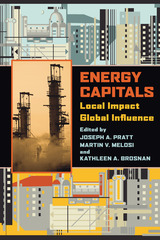
With case studies from the United States, Canada, Mexico, Norway, Africa, and Australia, this volume views a range of older and more recent energy capitals, contrasts their evolutions, and explores why some capitals were able to influence global trends in energy production and distribution while others failed to control even their own destinies. Chapters show how local and national politics, social structures, technological advantages, education systems, capital, infrastructure, labor force, supply and demand, and other factors have affected the ability of a region to develop and control its own fossil fuel reserves. The contributors also view the environmental impact of energy industries and demonstrate how, in the depletion of reserves or a shift to new energy sources, regions have or have not been able to recover economically.
The cities of Tampico, Mexico, and Port Gentil, Gabon, have seen their oil deposits exploited by international companies with little or nothing to show in return and at a high cost environmentally. At the opposite extreme, Houston, Texas, has witnessed great economic gain from its oil, natural gas, and petrochemical industries. Its growth, however, has been tempered by the immense strain on infrastructure and the human transformation of the natural environment. In another scenario, Perth, Australia, Calgary, Alberta, and Stavanger, Norway have benefitted as the closest established cities with administrative and financial assets for energy production that was developed hundreds of miles away.
Whether coal, oil, or natural gas, the essays offer important lessons learned over time and future considerations for the best ways to capture the benefits of energy development while limiting the cost to local populations and environments.
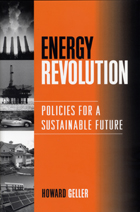
The transformation from a carbon-based world economy to one based on high efficiency and renewables is a necessary step if human society is to achieve sustainability. But while scientists and researchers have made significant advances in energy efficiency and renewable technologies in recent years, consumers have yet to see dramatic changes in the marketplace—due in large part to government policies and programs that favor the use of fossil fuels.
Energy Revolution examines the policy options for mitigating or removing the entrenched advantages held by fossil fuels and speeding the transition to a more sustainable energy future, one based on improved efficiency and a shift to renewable sources such as solar, wind, and bioenergy. The book:
- examines today's energy patterns and trends and their consequences
- describes the barriers to a more sustainable energy future and how those barriers can be overcome
- provides ten case studies of integrated strategies that have been effective in different parts of the world
- examines international policies and institutions and recommends ways they could be improved
- reviews global trends that suggest that the transition to renewables and increased efficiency is underway and is achievable

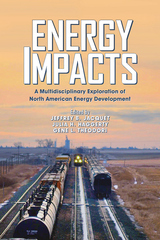
Twelve chapters from respected scholars in a variety of disciplines present new ways to consider and analyze energy impact research. Focused on varied energy topics, geographies, and disciplines, each chapter includes a policy brief that summarizes the work and provides “key takeaways” to apply the findings to policy and public discourse.
Meaningful public engagement is critical in limiting the negative implications of energy development, and understanding the social influences on and of energy systems is a cornerstone of addressing the climate crisis. As such, Energy Impacts is a significant work for students, scholars, and professionals working in sociology, education, geography, environmental studies, and public health.
This material is based upon work supported by the National Science Foundation under Grant No. 1528422. Publication is also supported, in part, by Montana State University.
Contributors:
Ali Adil, Lisa Bailey-Davis, Nancy Bowen-Elizey, Morey Burnham, Weston Eaton, Heather Feldhaus, Felix Fernando, Emily Grubert, C. Clare Hinrichs, John Hintz, Richard Hirsh, Season Hoard, Tamara Laninga, Eric Larson, Achla Marathe, Natalie Martinkus, Seven Mattes, Ronald Meyers, Patrick Miller, Ethan Minier, Myra Moss, Jacob Mowery, Thomas Murphy, Sevda Ozturk Sari, John Parkins, Christopher Podeschi, Nathan Ratledge, Sanne Rijkhoff, Kelli Roemer, Todd Schenk, Anju Seth, Kate Sherren, Jisoo Sim, Marc Stern, Jessica Ulrich-Schad, Cameron Whitley, Laura Zachary

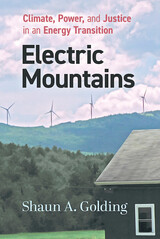
Committed environmentalists in one of North America’s most progressive regions desperately wanted energy policies that address the climate crisis. For many of them, wind turbines on Northern New England’s iconic ridgelines symbolize the energy transition that they have long hoped to see. For others, however, ridgeline wind takes on a very different meaning. When weighing its costs and benefits locally and globally, some wind opponents now see the graceful structures as symbols of corrupted energy politics.
This book derives from several years of research to make sense of how wind turbines have so starkly split a community of environmentalists, as well as several communities. In doing so, it casts a critical light on the roadmap for energy transition that Northern New England’s ridgeline wind projects demarcate. It outlines how ridgeline wind conforms to antiquated social structures propping up corporate energy interests, to the detriment of the swift de-carbonizing and equitable transformation that climate predictions warrant. It suggests, therefore, that the energy transition of which most of us are a part, is probably not the transition we would have designed ourselves, if we had been asked.

These climate and environmental impacts are particularly magnified and debilitating for low-income communities and communities of color that live closest to toxic sites, are disproportionately impacted by high incidences of asthma, cancer and rates of morbidity and mortality, and lack the financial resources to build resilience to climate change.
Energy democracy tenders a response and joins the environmental and climate movements with broader movements for social and economic change. Energy democracy is a way to frame the international struggle of working people, low income communities, and communities of color to take control of energy resources from the energy establishment and use those resources to empower their communities—literally providing energy, economically, and politically. Energy democracy is more important than ever as climate and social justice advocates confront a shocking political reality in the U.S.
This volume brings together racial, cultural, and generational perspectives. This diversity is bound together by a common operating frame: that the global fight to save the planet—to conserve and restore our natural resources to be life-sustaining—must fully engage community residents and must change the larger economy to be sustainable, democratic, and just. The contributors offer their perspectives and approaches to climate and clean energy from rural Mississippi, to the South Bronx, to Californian immigrant and refugee communities, to urban and semi-rural communities in the Northeast. Taken together, the contributions in this book show what an alternative, democratized energy future can look like, and will inspire others to take up the struggle to build the energy democracy movement.

The digital devices that, many would argue, define this era exist not only because of Silicon Valley innovations but also because of a burgeoning trade in dense, artisanally mined substances like tantalum, tin, and tungsten. In the tentatively postwar Eastern DR Congo, where many lives have been reoriented around artisanal mining, these minerals are socially dense, fueling movement and innovative collaborations that encompass diverse actors, geographies, temporalities, and dimensions. Focusing on the miners and traders of some of these “digital minerals,” The Eyes of the World examines how Eastern Congolese understand the work in which they are engaged, the forces pitted against them, and the complicated process through which substances in the earth and forest are converted into commodified resources. Smith shows how violent dispossession has fueled a bottom-up social theory that valorizes movement and collaboration—one that directly confronts both private mining companies and the tracking initiatives implemented by international companies aspiring to ensure that the minerals in digital devices are purified of blood.

In 1980, Christine J. Walley’s world was turned upside down when the steel mill in Southeast Chicago where her father worked abruptly closed. In the ensuing years, ninety thousand other area residents would also lose their jobs in the mills—just one example of the vast scale of deindustrialization occurring across the United States. The disruption of this event propelled Walley into a career as a cultural anthropologist, and now, in Exit Zero, she brings her anthropological perspective home, examining the fate of her family and that of blue-collar America at large.
This book is part of a project that also includes a documentary film.

It is often alleged that late Victorian businessmen in Britain displayed little of the vigor of their fathers in competition with the new industrial powers of the late nineteenth century, Germany and the United States. This allegation has been the foundation for a great many interpretations of the end of British domination over the world's economic life and of the economic difficulties that Britain has faced subsequently.
The British iron and steel industry is taken traditionally as the prime example of entrepreneurial decline. Mr. McCloskey shows, however, that businessmen in the industry performed on most counts as well as their German and American counterparts. The lack of evidence of entrepreneurial failure in the industry casts serious doubt on the importance of the entrepreneurial factor in Britain's relative decline. It suggests, indeed, that the supposed failure was a mere reflex of Britain's early attainment of economic maturity and the contemporaneous drive to maturity of Germany and the United States.
McCloskey uses relatively uncomplicated economic tools to establish these points. The central tool is the measurement of total factor productivity in the iron and steel industry in Britain and abroad. It is supplemented by analyses of supply and demand (to remove the influence of slowly growing demand at home from the record of the British industry): of the profitability of adopting the basic open hearth process of steelmaking (to show that the slowness of Britain to adopt it-which has been the keystone of the case for entrepreneurial failure-was economically rational); and of the competitiveness of the industry's markets (to validate use of these simple tools).
The book is based on a thorough study of the trade newspapers of the industry, its scientific journals, its statistical annuals, and the many reports of the British government and contemporary observers on its activities. It combines, therefore, the virtues of the "old" and the 'new" economic history. And although the book is historical, its conclusions are relevant to any study of economic growth past or present, in particular to the study of the role of entrepreneurship.
This book, a revision of Mr. McCloskey's Ph.D. dissertation, was awarded the David A. Wells Prize for l970-7l. The author is Associate Professor of Economics, The University of Chicago.

The second half of the nineteenth century witnessed some of the greatest gold mining migrations in history when dreams of bonanza lured thousands of prospectors and diggers to the far corners of the earth—including the Gold Coast of West Africa.
El Dorado in West Africa explores the first modern gold rush of Ghana in all of its dimensions—land, labor, capital, traditional African mining, technology, transport, management, the clash of cultures, and colonial rule. The rich tapestry of events is crisscrossed by unexpected ironies and paradoxes.
Professor Dumett tells the story of the expatriate-led gold boom of 1875-1900 against the background of colonial capitalism. Through the use of oral data, he also brings to light the expansion of a parallel “African gold mining frontier,” which outpaced the expatriate mining sector.
African women, kings and chiefs, and the ordinary Akan farmer/miners, as well as European engineers and speculators, are the focal points of this study. It probes in depth the productive and developmental features and the turbulent and shattering effects of mining capitalism on African societies.




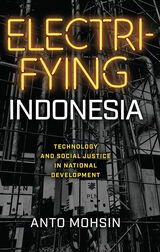
In this innovative volume, Anto Mohsin brings Indonesian studies together with science and technology studies to understand a crucial period in modern Indonesian history. He shows that attempts to illuminate the country were inseparable from the effort to maintain the new nation-state, chart its path to independence, and legitimize ruling regimes. In exchange for an often dramatically improved standard of living, people gave their votes, and their acquiescence, to the ruling government.
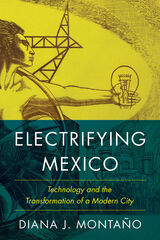
2022 Alfred B. Thomas Book Award, Southeastern Council of Latin American Studies (SECOLAS)
2022 Bolton-Johnson Prize, Conference on Latin American History (CLAH)
2022 Best Book in Non-North American Urban History, Urban History Association (Co-winner)
2023 Honorable Mention, Best Book in the Humanities, Latin American Studies Association Mexico Section
2023 Turriano Book Prize, International Committee for the History of Technology
Many visitors to Mexico City’s 1886 Electricity Exposition were amazed by their experience of the event, which included magnetic devices, electronic printers, and a banquet of light. It was both technological spectacle and political messaging, for speeches at the event lauded President Porfirio Díaz and bound such progress to his vision of a modern order.
Diana J. Montaño explores the role of electricity in Mexico’s economic and political evolution, as the coal-deficient country pioneered large-scale hydroelectricity and sought to face the world as a scientifically enlightened “empire of peace.” She is especially concerned with electrification at the social level. Ordinary electricity users were also agents and sites of change. Montaño documents inventions and adaptations that served local needs while fostering new ideas of time and space, body and self, the national and the foreign. Electricity also colored issues of gender, race, and class in ways specific to Mexico. Complicating historical discourses in which Latin Americans merely use technologies developed elsewhere, Electrifying Mexico emphasizes a particular national culture of scientific progress and its contributions to a uniquely Mexican modernist political subjectivity.

This collection brings together leading experts from academia, government, and big business to discuss the lessons learned from experiences such as California's market meltdown as well as the ill-conceived policy choices that contributed to those failures. More importantly, the essays that comprise Electricity Deregulation offer a number of innovative prescriptions for the successful design of deregulated electricity markets. Written with economists and professionals associated with each of the network industries in mind, this comprehensive volume provides a timely and astute deliberation on the many risks and rewards of electricity deregulation.


Dawson combines a theoretical framework based on models of social movements with extensive field research to compare the ways in which nationalism, regionalism, and other political demands were incorporated into anti-nuclear movements in Russia, Lithuania, Ukraine, Armenia, Tatarstan, and Crimea. These comparative case studies form the core of the book and trace differences among the various regional movements to the distinctive national identities of groups involved. Reflecting the new opportunities for research that have become available since the late 1980s, these studies draw upon Dawson’s extended on-site observation of local movements through 1995 and her unique access to movement activists and their personal archives.
Analyzing and documenting a development with sobering and potentially devastating implications for nuclear power safety in the former USSR and beyond, Eco-nationalism’s examination of social activism in late and postcommunist societies will interest readers concerned with the politics of global environmentalism and the process of democratization in the post-Soviet world.
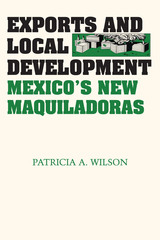
Mexico's export assembly industry has been the object of an intensely polarized debate. While some observers laud the maquiladora industry as a source of much-needed employment and foreign exchange for Mexico, others berate it as a vehicle for exploitation and pollution. Exports and Local Development attempts to transcend the dichotomy by taking a practical look at how this export industry could be better utilized to promote local development.
Using data gathered from a field survey of more than seventy maquiladora plants, Patricia A. Wilson compares the Mexican industry with its more successful Asian counterparts to determine how policy initiatives might help Mexico use local linkages to tap the potential of both local and foreign-owned assembly plants.
The study grounds its analysis of the maquiladora industry in leading-edge issues including the rise of free trade, changing corporate sourcing strategies, the competitiveness of U.S. manufacturing, the Japanese challenge, the spread of flexible technology and management methods, the impacts of export-led development strategies, the importance of business networking, and the role of small business. It will be of interest to a wide audience in international business, economic development planning, public policy, and economic geography.

This book charts the vicissitudes of a rural community of papermakers in Sichuan. The process of transforming bamboo into paper involves production-related and social skills, as well as the everyday skills that allowed these papermakers to survive in an era of tumultuous change. The Chinese revolution—understood as a series of interconnected political, social, and technological transformations—was, Jacob Eyferth argues, as much about the redistribution of skill, knowledge, and technical control as it was about the redistribution of land and political power.
The larger context for this study is the “rural–urban divide”: the institutional, social, and economic cleavages that separate rural people from urbanites. This book traces the changes in the distribution of knowledge that led to a massive transfer of technical control from villages to cities, from primary producers to managerial elites, and from women to men. It asks how a vision of rural people as unskilled has affected their place in the body politic and contributed to their disenfranchisement. By viewing skill as a contested resource, subject to distribution struggles, it addresses the issue of how revolution, state-making, and marketization have changed rural China.

More than any other single group of individuals, the Boston Associates were responsible for the sweeping economic transformation that occurred in New England between 1815 and 1861. Through the use of the corporate form, they established an extensive network of modern business enterprises that were among the largest of the time. Their most notable achievement was the development of the Waltham-Lowell system in the textile industry, but they were also active in transportation, banking, and insurance, and at the same time played a major role in philanthropy and politics.
Evaluating each of these efforts in turn and placing the Associates in the context of the society and culture that produced them, the author convincingly explains the complex motives that led the group to undertake initiatives on so many different fronts. Dalzell shows that men like Francis Cabot Lowell, Nathan Appleton, and Amos and Abbott Lawrence are best understood as transitional figures. Although they used modern methods when it suited their interest, they were most concerned with protecting the positions they had already won at the top of a traditional social order. Thus, for all the innovations they sponsored, their commitment to change remained both partial and highly selective. And while something very like an industrial revolution did occur in New England during the nineteenth century, paradoxically the Associates neither sought nor welcomed it. On the contrary, as time passed they became increasingly preoccupied with combating the forces of change.
In addition to the light it sheds on a crucial chapter of business history, this gracefully written study offers fresh insights into the role and attitudes of elites during the period. Furthermore it contradicts some of the prevailing thought about entrepreneurial behavior in the early phases of industrialization in America.

One of the most striking features of contemporary industrial economies is their ability to offer an ever-expanding and improving range of products. Personal computers, tiny pacemakers, digital watches, and VCRs simply did not exist, and were not even dreamt of, only a few decades ago. Such product innovations play an increasingly important role in modern economic growth, and it is therefore imperative that economists come to grips with them, just as they have done with traditional economic phenomena.
In this skillfully crafted and imaginative study, Manuel Trajtenberg develops the tools to quantify and analyze the notion of product innovation. He argues persuasively that the magnitude of an innovation should be equated with the social benefits that it generates. Drawing from the "characteristics approach" to demand theory and the econometrics of discrete choice, he presents an ingenious method to estimate the benefits from product innovations that accrue to the consumer over time. His method centers on consumer preferences for different product attributes -such as speed and size of memory in computers-and then uses those preferences to evaluate the changes in attributes.
Trajtenberg applies his approach to the study of one of the most remarkable innovations in medical technology--Computed Tomography (CT) scanners. He assembled for that purpose an impressive set of data on every aspect of the new technology, from qualities and prices, patents and research, to details on virtually every sale in the United States during the decade following the introduction of CT in 1973. This close-up view of an innovation, quite rare in economic literature, offers valuable insights on the nature of the innovative process, the interaction between innovation and diffusion, the effects of uncertainty about quality, and the implications of changing preferences.
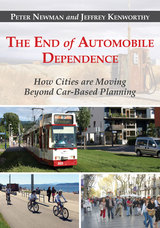
We are thus in a new era that has come much faster than global transportation experts Peter Newman and Jeffrey Kenworthy had predicted: the end of automobile dependence. In The End of Automobile Dependence, Newman and Kenworthy look at how we can accelerate a planning approach to designing urban environments that can function reliably and conveniently on alternative modes, with a refined and more civilized automobile playing a very much reduced and manageable role in urban transportation. The authors examine the rise and fall of automobile dependence using updated data on 44 global cities to better understand how to facilitate and guide cities to the most productive and sustainable outcomes.
This is the final volume in a trilogy by Newman and Kenworthy on automobile dependence (Cities and Automobile Dependence in 1989 and Sustainability and Cities: Overcoming Automobile Dependence in 1999). Like all good trilogies this one shows the rise of an empire, in this case that of the automobile, the peak of its power, and the decline of that empire.

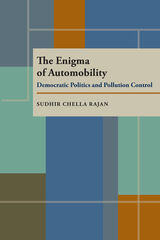

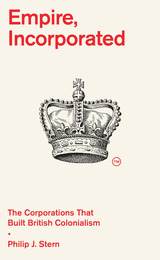
“A landmark book…[a] bold reframing of the history of the British Empire.”
—Caroline Elkins, Foreign Affairs
An award-winning historian places the corporation—more than the Crown—at the heart of British colonialism, arguing that companies built and governed global empire, raising questions about public and private power that were just as troubling four hundred years ago as they are today.
Across four centuries, from Ireland to India, the Americas to Africa and Australia, British colonialism was above all the business of corporations. Corporations conceived, promoted, financed, and governed overseas expansion, making claims over territory and peoples while ensuring that British and colonial society were invested, quite literally, in their ventures. Colonial companies were also relentlessly controversial, frequently in debt, and prone to failure. The corporation was well-suited to overseas expansion not because it was an inevitable juggernaut but because, like empire itself, it was an elusive contradiction: public and private; person and society; subordinate and autonomous; centralized and diffuse; immortal and precarious; national and cosmopolitan—a legal fiction with very real power.
Breaking from traditional histories in which corporations take a supporting role by doing the dirty work of sovereign states in exchange for commercial monopolies, Philip Stern argues that corporations took the lead in global expansion and administration. Whether in sixteenth-century Ireland and North America or the Falklands in the early 1980s, corporations were key players. And, as Empire, Incorporated makes clear, venture colonialism did not cease with the end of empire. Its legacies continue to raise questions about corporate power that are just as relevant today as they were 400 years ago.
Challenging conventional wisdom about where power is held on a global scale, Stern complicates the supposedly firm distinction between private enterprise and the state, offering a new history of the British Empire, as well as a new history of the corporation.
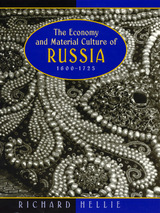
Impressive in scope and data analysis, Economy and Material Culture of Russia, 1600-1725 will be an invaluable resource and reference work for all readers interested in economic history and the history of material culture. Since there is no comparable one-volume work for any other society at any other time in history, Hellie's is a truly unique and profound achievement.

"Globalization" is here. Signified by an increasingly close economic interconnection that has led to profound political and social change around the world, the process seems irreversible. In this book, however, Harold James provides a sobering historical perspective, exploring the circumstances in which the globally integrated world of an earlier era broke down under the pressure of unexpected events.
James examines one of the great historical nightmares of the twentieth century: the collapse of globalism in the Great Depression. Analyzing this collapse in terms of three main components of global economics--capital flows, trade, and international migration--James argues that it was not simply a consequence of the strains of World War I but resulted from the interplay of resentments against all these elements of mobility, as well as from the policies and institutions designed to assuage the threats of globalism. Could it happen again? There are significant parallels today: highly integrated systems are inherently vulnerable to collapse, and world financial markets are vulnerable and unstable. While James does not foresee another Great Depression, his book provides a cautionary tale in which institutions meant to save the world from the consequences of globalization--think WTO and IMF, in our own time--ended by destroying both prosperity and peace.
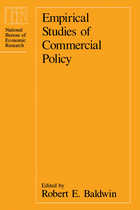
Marked by a shift from a traditional reliance on simulation models, these papers take their inspiration from recent changes in the assumptions traditionally underlying research in international trade theory. No longer are government policies viewed as being somehow "given" to the researcher; in part 1, "Analyses with a Political Economy Perspective," four papers treat such policies as endogenous and explicable in terms of political economy. Neither are product and factor markets seen as perfectly competitive; instead, the three papers in part 2, "Trade Policy Effects under Imperfectly Competitive Market Conditions," assume that firms consider the actions of other companies when formulating their decisions. In part 3, "A New Measure of Trade Restrictiveness and Estimates of Trade Policy Effects with CGE Models," the first essay explores the quantitative restrictions on cheese to develop and implement a new model of restrictive trade. Two final contributions address problems for which simulation modeling is especially useful. The first considers the effectiveness of an import surcharge in reducing the U.S. trade deficit and the second treats the welfare effects of liberalization in South Korea where increasing returns to scale are significant
These innovative studies focus on economic behavior that will provide valuable insights for policymakers, academic economists, and students.
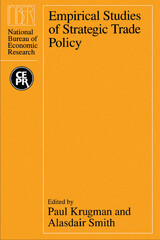
The nine papers cover the U.S. and European auto industries, the U.S. steel industry, the commercial aircraft industry, airline deregulation in Scandinavia, and labor and industrial policy in Korea and Taiwan. The authors refine the basic techniques for measuring policy effectiveness, extend them to encompass industry dynamics, and test the implications of new trade models.
International economists and trade experts in government and business will find important new insights into the role of strategic trade policy in international competitiveness.

Empires on the Waterfront offers a new spatial framework for understanding Japan’s extended transition into the modern world of nation-states. This study examines a largely unacknowledged system of “special trading ports” that operated under full Japanese jurisdiction in the shadow of the better-known treaty ports. By allowing Japan to circumvent conditions imposed on treaty ports, the special trading ports were key to achieving autonomy and regional power.
Catherine L. Phipps uses an overtly geographic approach to demonstrate that the establishment of Japan’s maritime networks depended on initiatives made and carried out on multiple geographical scales—global, national, and local. The story of the special trading ports unfolds in these three dimensions. Through an in-depth assessment of the port of Moji in northern Kyushu, Empires on the Waterfront recasts the rise of Japan’s own empire as a process deeply embedded in the complicated system of maritime relations in East Asia during the pivotal second half of the nineteenth century.
READERS
Browse our collection.
PUBLISHERS
See BiblioVault's publisher services.
STUDENT SERVICES
Files for college accessibility offices.
UChicago Accessibility Resources
home | accessibility | search | about | contact us
BiblioVault ® 2001 - 2024
The University of Chicago Press









